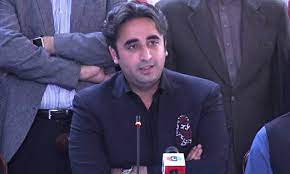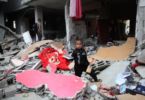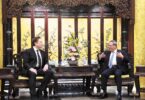Foreign Minister and Pakistan Peoples Party (PPP) Chairman Bilawal Bhutto Zardari has expressed his concerns about the state of democracy in Pakistan, urging for a united effort to prevent it from being pushed into a closed alley, circumstances similar to that led the Pakistan Tehreek-e-Insaf (PTI) government to collapse.
During his speech in the National Assembly, Bilawal emphasized the need to strengthen Prime Minister Shahbaz Sharif and called for politics free from backbiting and character assassination. He urged political parties to function within the bounds of democracy, uphold the constitution, and the law and protect democratic values in society. Bilawal claimed that his party functions democratically, and does not harbor any sympathy for those who resorted to violence and terrorist-like tactics in politics. Bilawal called for a collective effort to preserve the democratic system and limit the impact of undemocratic politicians.
Politics and statesmanship are old-age professions, while famous public leaders, clerics, and rulers served their people by means of those prestigious crafts. Principled and merit-based Politics is no less than worship, however, foreign pawns, corrupt and disbelievers had always spoiled this poise profession through conspiracies, blackmail, and propaganda.
The PPP Chairman has now attained sufficient expertise in political tradecraft and changes his stance, style, and appearance so recurrently and instantly that even the PPP workers are unable to grasp the true spirit of their leader. A few days earlier, Foreign Minister and the PPP Chairman warned the PML-N leadership of grave consequences if it fails in releasing funds for the flood victims in Sindh, and threatened to pull back his party’s support for the coalition government.
Interestingly, the allocation of Rs. 20 billion for the relief and rehabilitation work in Sindh entirely changed the tone of Bilawal Bhutto Zardari who delivered a comprehensive lecture on the principles of democracy, demerits of political blackmail, and advantages of unity and cooperation.
Apparently, the PDM coalition has matured its real life and accomplished its sole mission of removing their common adversary from the Premiership of the country and creating a favorable environment for the next general election. The PPP has tactfully played its cards by keeping itself at a considerable distance from criticism about poor economic policies, alleged human rights abuses, and maltreatment of their political adversaries over the past year.
Bilawal has gained significant experience in statesmanship and global diplomacy and currently preparing for a higher role presumably Prime Ministership in the next political setup in the country. The PML-N will carry the whole baggage of failed economy and non-deliverance to the public, criticism for mishandling of its political opponents, and will face allegations of violating the constitution and human rights abuses.
At the time, the PPP aims at forming the next government in the country, it enjoys a majority in Sindh and will intend to make coalition governments in Balochistan and the KP with the help of local groups. Meanwhile, PPP might agree to constitute an alliance or seat adjustment with PML-N or with Tareen’s Istikham-e-Pakistan party in Punjab. On the other hand, the PML-N is also aware of the challenges it faces at its home ground in Punjab. Shehbaz is okay to cooperate with JUI-F and ANP in KP and Balochistan to form PML-N-backed provincial governments there. presently, the coalition government has limited time on its credit to shed off the backlash of rising inflation and poor economic conditions in the country to steer for the upcoming general election.
Over the years, politics has become a tool to grasp political, economic, and monetary benefits for oneself, family, and friends instead of a source of service to the public and the country. Public issues became tools for trading, bargaining, and a source of blackmail against the ruling government and people in power.
Earlier, party politics and horse-trading wrapped the PTI government a year ago, while similar situations are being faced by the ruling coalition government. Each coalition partner evades responsibility but demands lucrative ministries, and monetary incentives for his support to the government that undermines democracy and causes an ultimate burden on the national exchequer.
After recurrent martial laws, experiments for a controlled democracy, and a failed attempt to revive the model of Risasat-e-Madina, the people of the country had lost their faith in the national leadership across the board. In fact, no positive change is possible until and unless Pakistani leaders reform themselves, bring pivotal change in their politics, segregate their business from this poise profession, and work for the benefit of the nation.
Being a representative of the new generation, Bilawal and other young politicians must get rid of old-aged tactics, introduce new trends, selflessness, and genuine pro-public manifestos, so this nation comes out of chronic political, economic, and social issues and moves toward political stability, economic growth, and social revolution.







